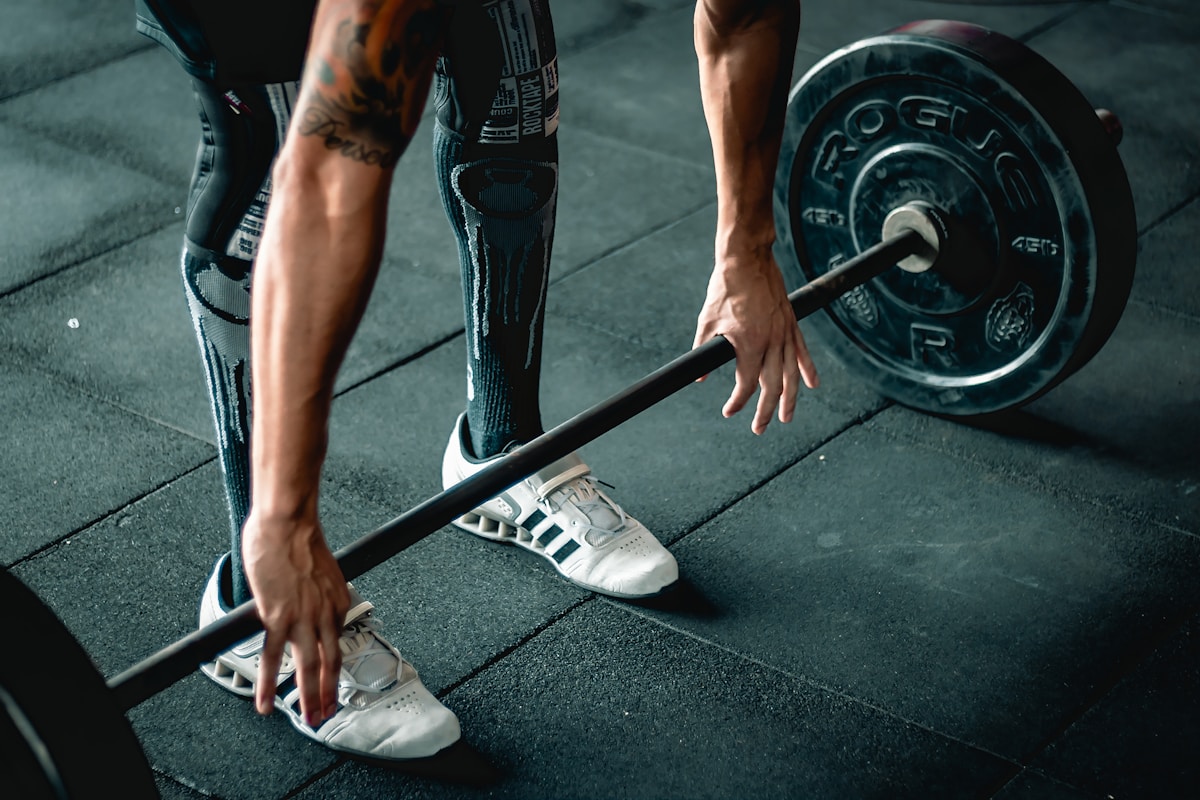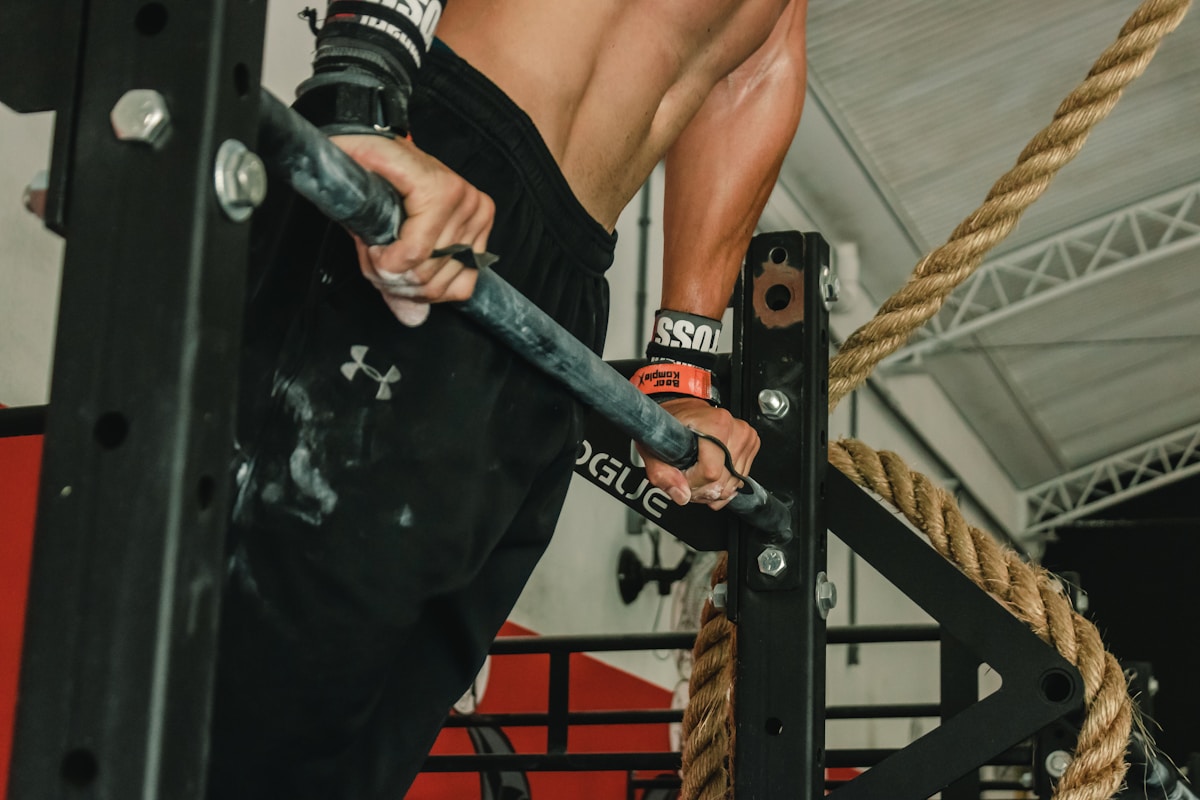How to Optimize Your Nutrition for CrossFit and HIIT Training
Understanding the Importance of Nutrition in CrossFit and HIIT Training
Understanding the Importance of Nutrition in CrossFit and HIIT Training
Nutrition plays a pivotal role in optimizing performance and achieving desired results in CrossFit and HIIT training. Proper fueling and nourishment provide the energy, nutrients, and recovery support needed to push your limits and maximize your training outcomes.
CrossFit and HIIT workouts are intense and demanding, requiring a well-balanced diet to meet the increased energy demands. A nutrient-dense diet ensures an adequate supply of macronutrients (carbohydrates, proteins, and fats) to fuel your workouts and support muscle repair and growth.
Carbohydrates are the primary source of energy for high-intensity exercise, supplying glycogen to fuel your muscles. Including complex carbohydrates from whole grains, fruits, and vegetables helps sustain energy levels during prolonged workouts.
Protein is crucial for muscle repair and recovery. It aids in rebuilding damaged tissues and supports the growth and maintenance of lean muscle mass. Incorporating lean sources of protein such as chicken, fish, tofu, or beans in your meals promotes muscle repair and enhances overall performance.
Healthy fats, like those found in avocados, nuts, and olive oil, provide essential fatty acids that support joint health and hormone production. They also contribute to satiety, helping you feel full and satisfied after meals.
Hydration is another vital aspect of nutrition in CrossFit and HIIT training. Staying properly hydrated optimizes performance, aids in digestion, and regulates body temperature. Be sure to drink enough water before, during, and after your workouts to maintain optimal hydration levels.
In conclusion, understanding the importance of nutrition in CrossFit and HIIT training is crucial for maximizing performance and achieving your goals. By fueling your body with the right balance of macronutrients, staying hydrated, and making informed dietary choices, you can optimize your training, enhance recovery, and unlock your full potential as an athlete.
Fueling Your Workouts: Key Nutrients for Performance and Recovery
Fueling Your Workouts: Key Nutrients for Performance and Recovery
Properly fueling your workouts is essential for optimal performance and efficient recovery in CrossFit and HIIT training. By supplying your body with the right nutrients, you can enhance energy levels, promote muscle growth, and support overall athletic performance.
Carbohydrates are the primary fuel source for high-intensity workouts. Consuming complex carbohydrates, such as whole grains, sweet potatoes, and quinoa, provides sustained energy to power through intense training sessions. Aim to include carbohydrates in your pre-workout meal or snack to ensure adequate glycogen stores.
Protein is crucial for muscle repair and recovery. It aids in repairing damaged muscle fibers and promotes muscle growth. Incorporate lean sources of protein, such as lean meats, poultry, fish, eggs, or plant-based alternatives like tofu and legumes, into your meals or post-workout shakes to support muscle recovery and development.
Healthy fats, such as avocados, nuts, and seeds, are important for hormone production and joint health. They also provide a slow and steady release of energy, keeping you fueled during longer workouts.
Hydration is paramount for optimal performance. Adequate fluid intake before, during, and after your workouts helps regulate body temperature, maintain blood volume, and support nutrient delivery to your muscles. Water is generally the best choice for hydration, but if you engage in prolonged or intense exercise, consider including electrolyte-rich beverages or sports drinks.
In conclusion, fueling your workouts with the right combination of carbohydrates, protein, and healthy fats, along with proper hydration, is vital for maximizing performance and supporting recovery in CrossFit and HIIT training. By nourishing your body with the key nutrients it needs, you can optimize your athletic performance, enhance muscle growth, and achieve your fitness goals.
Pre-Workout Nutrition: Strategies to Maximize Energy and Endurance
Pre-Workout Nutrition: Strategies to Maximize Energy and Endurance
Proper pre-workout nutrition is crucial for fueling your body and maximizing energy levels and endurance during CrossFit and HIIT training. By implementing effective strategies, you can optimize your performance and achieve your fitness goals more efficiently.
Timing is key when it comes to pre-workout nutrition. Aim to consume a balanced meal or snack containing carbohydrates, protein, and a moderate amount of healthy fats approximately 1-2 hours before your workout. This timeframe allows for digestion and absorption, providing your body with a steady release of energy.
Carbohydrates are essential for providing immediate energy and sustaining endurance during high-intensity workouts. Opt for complex carbohydrates like whole grains, fruits, and vegetables, as they provide a more sustained energy release compared to simple sugars.
Including a moderate amount of protein in your pre-workout meal or snack supports muscle protein synthesis and prevents muscle breakdown. Lean sources such as chicken, fish, Greek yogurt, or protein shakes are excellent choices.
Avoid consuming large amounts of fat or high-fiber foods close to your workout, as they can cause digestive discomfort and slow down digestion, hindering your performance.
Additionally, stay hydrated before your workout. Drink water throughout the day leading up to your training session to ensure proper hydration. Aim to consume around 16-20 ounces of water 1-2 hours before your workout and an additional 8-10 ounces closer to the session.
Experiment with different food choices and timing to find what works best for your body and training routine. Listen to your body’s needs and adjust your pre-workout nutrition accordingly.
In summary, optimizing your pre-workout nutrition is essential for maximizing energy and endurance in CrossFit and HIIT training. By consuming a balanced meal or snack rich in carbohydrates, protein, and moderate fats, along with proper hydration, you can fuel your body effectively and perform at your best during your workouts.
Post-Workout Nutrition: Replenishing Nutrients for Optimal Recovery
Post-Workout Nutrition: Replenishing Nutrients for Optimal Recovery
Proper post-workout nutrition is vital for replenishing your body’s energy stores, repairing muscle tissue, and promoting optimal recovery after intense CrossFit and HIIT training sessions. By providing your body with the right nutrients, you can enhance muscle recovery, reduce muscle soreness, and prepare for your next workout more effectively.
One of the key components of post-workout nutrition is consuming an adequate amount of protein. Protein plays a crucial role in repairing and rebuilding damaged muscle fibers. Include a high-quality protein source, such as lean meats, fish, eggs, dairy products, or plant-based alternatives like tofu or legumes, in your post-workout meal or snack to support muscle recovery and growth.
Carbohydrates are also essential during the post-workout period as they replenish glycogen stores, which are depleted during intense exercise. Opt for complex carbohydrates like whole grains, fruits, and starchy vegetables to restore energy levels and facilitate recovery.
Incorporating a small amount of healthy fats, such as avocados, nuts, or seeds, can help provide essential fatty acids and promote satiety, supporting overall recovery and nutrient absorption.
Hydration is equally important after a workout. Replenish fluids by drinking water or consuming hydrating foods like fruits and vegetables to replace lost fluids and electrolytes.
Timing is crucial when it comes to post-workout nutrition. Aim to consume a well-balanced meal or snack within 30 minutes to an hour after your workout to optimize nutrient absorption and enhance the recovery process.
In conclusion, prioritizing post-workout nutrition is vital for maximizing recovery and optimizing performance in CrossFit and HIIT training. By replenishing your body with protein, carbohydrates, healthy fats, and adequate hydration, you can support muscle repair, replenish energy stores, and accelerate your recovery process, ensuring you’re ready for your next training session.
Meal Planning and Timing: Creating a Nutritional Strategy for CrossFit and HIIT Training
Meal Planning and Timing: Creating a Nutritional Strategy for CrossFit and HIIT Training
Meal planning and timing are essential components of a successful nutritional strategy for CrossFit and HIIT training. By strategically organizing your meals and considering the timing of nutrient intake, you can optimize performance, support recovery, and achieve your fitness goals more effectively.
First, establish a meal plan that includes a balance of macronutrients (carbohydrates, proteins, and fats) and micronutrients (vitamins and minerals) to provide your body with the necessary fuel and nutrients it needs. Plan meals that incorporate a variety of whole, unprocessed foods to ensure a wide range of essential nutrients.
Consider the timing of your meals in relation to your workouts. Pre-workout meals should be consumed 1-2 hours beforehand to allow for digestion and provide sustained energy. Post-workout meals or snacks should be consumed within 30 minutes to an hour after exercise to replenish energy stores and support muscle recovery.
Additionally, consider your individual goals and training schedule when planning your meals. If your goal is to lose weight or decrease body fat, ensure that your caloric intake aligns with your goals. If you have intense training sessions, you may need to increase your caloric intake to fuel your workouts adequately.
Meal timing throughout the day is also important. Aim to eat smaller, balanced meals or snacks every 3-4 hours to maintain a steady supply of nutrients and energy throughout the day. This approach helps to prevent energy crashes, stabilize blood sugar levels, and support consistent performance during training.
In conclusion, meal planning and timing are crucial aspects of a comprehensive nutritional strategy for CrossFit and HIIT training. By creating a well-balanced meal plan, considering the timing of nutrient intake, and aligning your meals with your training schedule and goals, you can optimize performance, support recovery, and fuel your body effectively for optimal results.
Conclusion
By implementing a well-designed nutrition plan that focuses on pre-workout fueling, post-workout recovery, and strategic meal planning and timing, you can enhance your performance, promote efficient recovery, and achieve your fitness goals. Remember, nutrition is the fuel that powers your training, so take the time to prioritize it and fuel your body for success.



